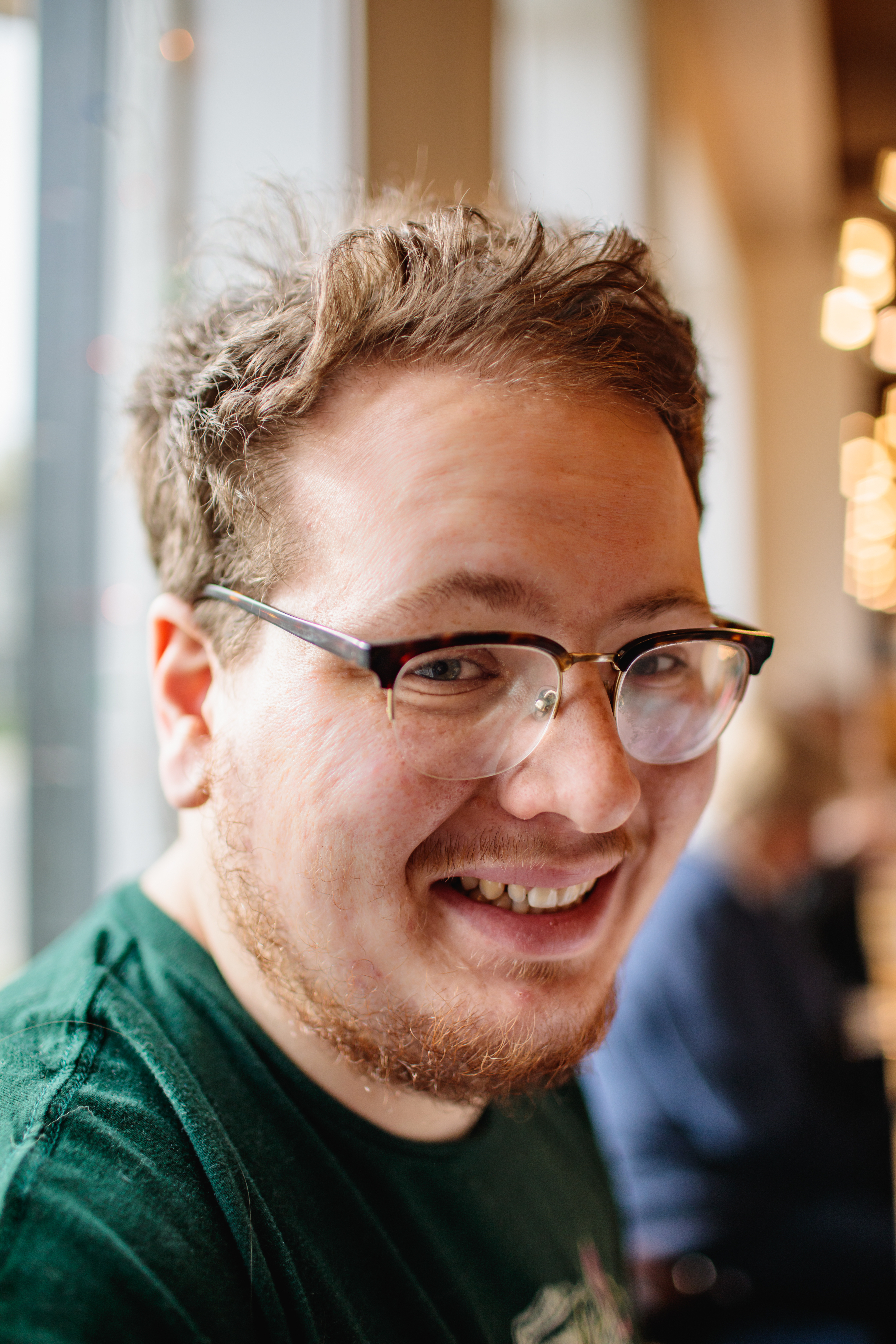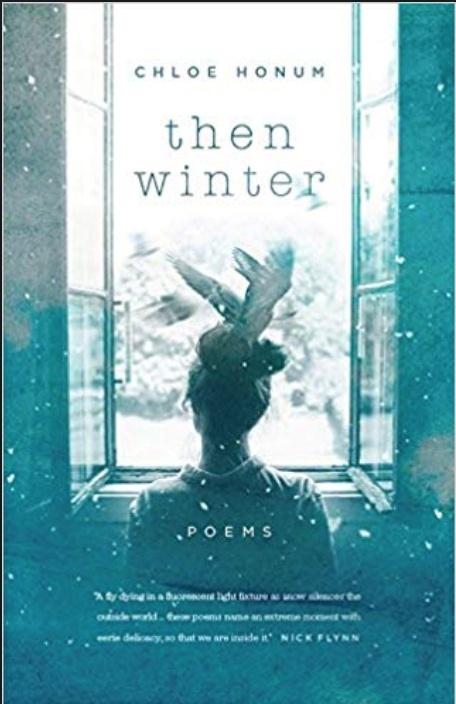ISSN: 1941-4137
POETRY THAT ENACTS THE ARTISTIC AND CREATIVE PURITY OF GLASS
POETRY THAT ENACTS THE ARTISTIC AND CREATIVE PURITY OF GLASS

John McCracken is a poet and freelance writer from Madison, WI whose work has appeared or is forthcoming in OCCULUM, Drunk in a Midnight Choir, Pressure Gauge Journal, and The Adroit Journal. He is a Staff Reviewer for Glass: A Journal of Poetry and provides culture and arts coverage for Tone Madison. For more, visit his website or find @jmcjmc.451 on Instagram.
July 9, 2019
Edited by Stephanie Kaylor
Edited by Stephanie Kaylor
Review of Then Winter by Chloe Honum

Then Winter
Chloe Honum
Bull City Press, 2017
Chloe Honum’s Then Winter (Bull City Press, 2017) threads a tapestry of memory through short narrative poems, playful turcets, and more that ecall time spent at a psychiatric hospital. Honum’s precision with an image is continually piercing as she archives her inner meditations during a painstaking time.
The poems themselves read as an obituary. An image is laid bare in description, carefully anointed and then referred to as if it has already passed on. In the poem “Before Group Meditation”, Honum focuses on a lingering past to cope with the present situation laid out in the title of the poem.
I recall splendor.
On a borrowed bicycle,
I wobbled fast
downhill over jutting roots,
a swarm of horseflies
like a grainy moon
following close behind
When the poems refer to the past there is a film laid over our eyes. Intentional or not, the work needed to uncover the past is daunting when thinking through situations laid out to the reader. A majority of poems in the collection set us at a certain moment that was necessary to remember. We navigate a trail of rocks through Honum’s stream of consciousness, getting slightly drenched with each image, closer to a presumed truth we must piece together.
In navigating the moments of Then Winter, recurring characters help guide the way. A boy with a malformed body, a Vietnam vet, and the phystartic staff all play such an important part to the speaker’s healing process while present in the facility. In the poem “Group Therapy”, the speaker constructs a family through the people of the facility — only to destroy it.
In any group, I want to know: Who’s the mother? The boy with
the twisted body, he’s the angel. The Vietnam vet is the son.
The nervous old lady is the baby. The counselor is the meddling
neighbor. Now that I see a family, I can breathe. The leaves are
crimson. I have something to tear down.
But why is this urge to construct and destroy present? I saw the lack of permanence as a catalyst for change throughout the collection. Although the speaker is surrounded by walls of the facility, institutional proceedings and meetings, yet there is still a haze around the speaker, as if looking at the world through a one inch thick window. Everything is just out of reach in a time of continual uncertainty, but the speaker continues on. This is shown in an earlier stanza of the same poem “Group Therapy”.
Beyond the
window, autumn toys with the idea of heaven. The trees become
fiercely talented and focused. Then winter.
While the characters of the collection anchor the reader, the largest moving force in Honum’s poems is nature and its demanding toll.
The windows in the common room look down on a parking
lot. Snow keeps coming, though it is already the conqueror of
anything it wants.”
Here, in “First Day of Partial Hospitalization”, the connection between a waning permeance and the natural world’s indifference to our suffering presents itself. The speaker recalls the tightrope of life and death that is a constant in hospitals.
When a baby is born, a speaker mounted
above the entrance plays a lullaby. One patient wonders
aloud why the music doesn’t play when somebody dies,
suggests ‘Stairway to Heaven.”
This pondering of how new life is honored and death is hushed reflects a missing certainty. Honum cradles this questioning between lines focused on the continual march of the natural world to showcase how despite our wondering, time continues to move on. She closes the poem with a plea for a decision to be made in her time of partial life.
On my drive home, trucks swallow the
narrow hills. I all but close my eyes. Hurry, darling. I would
side with winter — if it would free me, I would stay.
It would be foolish to describe Honum’s latest collection as intimate. These are sharp moments of collected memory, cleaned and distilled like insects put on display. We hover above each poem, feeling so far away from the moment in which it occurred, but yet given the power to recount each granular detail of the memory. Through the pulsing navigation of a medical institution, Honum reminds us of powerful forces that remain unseen; the bonds between people with shared afflictions, the stillness the world when left alone, and the impending death grip that the natural world has over all living things. While searching for balance, Honum extends an invitation to those with unstable footing to get swept away in a ceaseless stream.
Visit Chloe Honum's Website
Visit Bull City Press' Website
Glass: A Journal of Poetry is published monthly by Glass Poetry Press.
All contents © the author.
All contents © the author.





